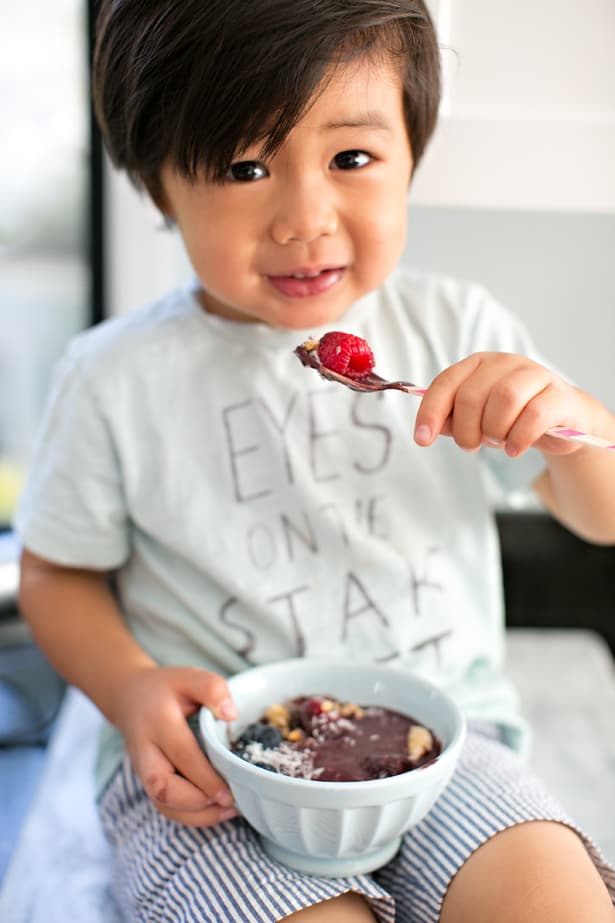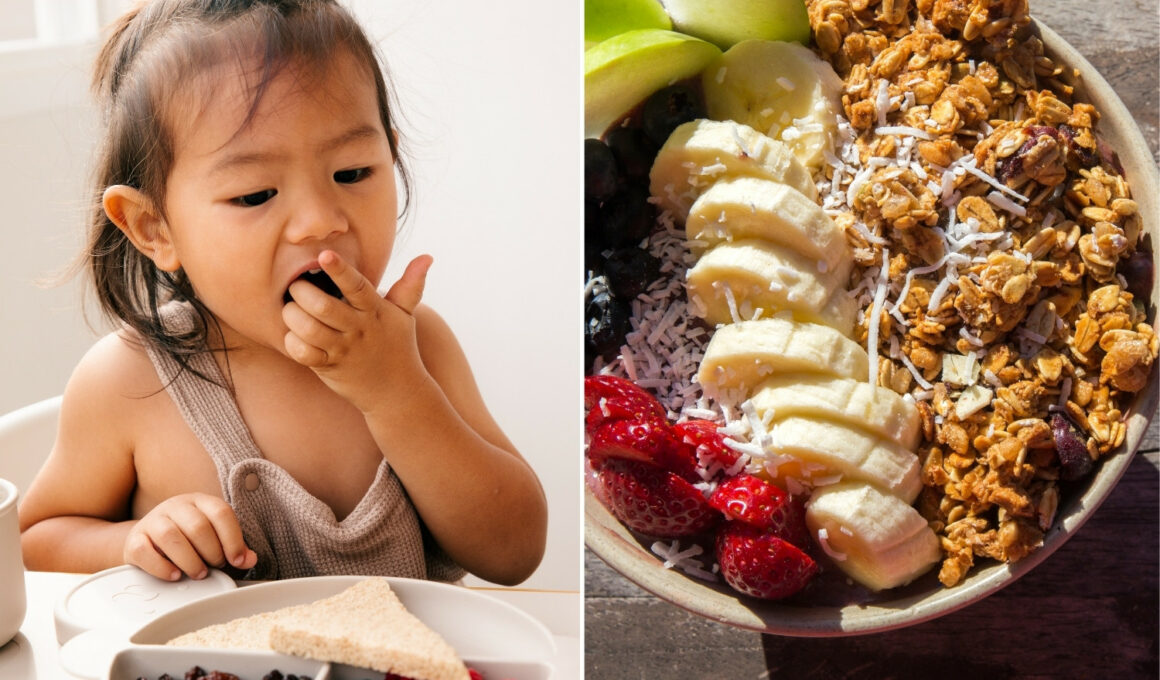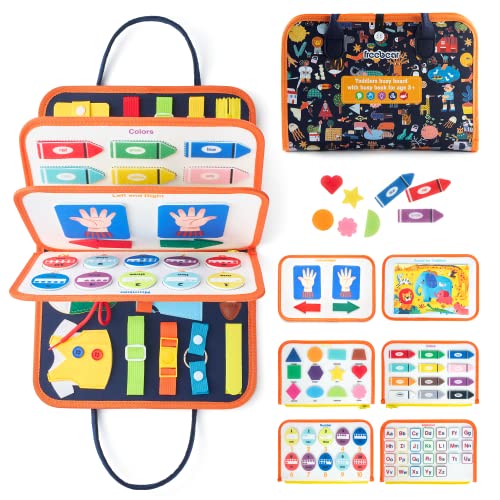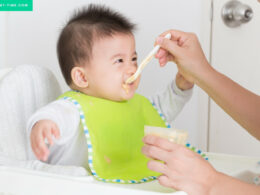In This Article Show
Key Points
- Babies above six months can be fed with Acai puree.
- Consult with your pediatrician before introducing Acai to your baby’s diet.
- If your baby seems hesitant about trying an Acai meal, don’t force it.
- Always watch for allergies after feeding your baby Acai.
Are you a parent wondering if your little one can eat acai? Acai berries are packed with numerous health benefits that make them an excellent addition to your baby’s diet. However, introducing new foods to babies can be tricky.
We have put together this guide to help you understand the benefits of acai for babies, how to introduce it into their diet safely, delicious recipes they’ll love, and precautions you should take when feeding them acai. So let’s dive in!
Can Babies Eat Acai?
Yes, babies above six months can be fed with Acai puree. Acai is a superfood that offers numerous health benefits for babies. It contains essential nutrients and antioxidants that aid in their growth and development. Fiber is crucial for healthy digestion, and acai berries provide an abundant supply that can prevent constipation in babies.
Another benefit of introducing acai into your baby’s diet is its anti-inflammatory properties that may aid with conditions such as asthma or eczema. However, it’s crucial to introduce acai gradually and watch out for any allergic reactions or digestive issues.
As always, consult with your pediatrician before introducing new foods to your baby’s diet. With proper precautions and moderation, acai can be an excellent addition to your baby’s meals!
Great deals to snatch for your little ones 🎉
How to Introduce Acai to Your Baby

When introducing new food to your baby, it’s important to take things slow and start small. Acai is no exception. Here are some tips to help you introduce this delicious superfood to your little one:
- Ensure your baby is at least six months old before giving them acai. Their digestive system is more developed at this age, and they’re better able to handle solid foods.
- Start by offering a tiny amount of acai puree. This will help familiarize your baby’s taste buds with the unique flavor of acai without overwhelming them.
- If your baby seems hesitant about trying the new food, don’t force it. Offer it again in a few days or weeks when they seem more interested in exploring different tastes and textures.
- As your baby grows older and becomes more comfortable eating solids, you can experiment with recipes incorporating acai into their meals—mixing it into oatmeal or yogurt for added nutrition and flavor.
- When feeding your baby acai, use fresh or organic frozen berries without added sugars or preservatives. Mix it with other fruits or blend it into purees to create delicious recipes that your little one will love.
- Remember that every child is different, so be patient as you introduce new foods like acai into their diet. With time and patience, they’ll learn to love this healthy superfood as much as you do.
Acai Recipes For Babies
Here are some easy and tasty acai recipes for babies that you can try out:
- Acai Smoothie Bowl: Blend frozen bananas, blueberries, and acai.
- Acai Yogurt Parfait: Layer plain Greek yogurt with mashed banana and blend acai berries.
- Acai Popsicles: Mix pureed strawberries, mashed bananas, and blended acai berries before freezing them into popsicle molds.
- Acai Oatmeal: Cook rolled oats in water or milk before adding mashed avocado and blended acai berries for added nutrition.
Precautions When Feeding Your Baby Acai
When it comes to feeding your baby acai, some precautions must be followed to ensure they stay safe and healthy.
- Always ensure the acai is fresh and properly cleaned before giving it to your baby. This will help prevent any potential bacterial or fungal infections.
- It’s also important to introduce acai gradually into your baby’s diet, starting with small amounts and monitoring for any signs of allergic reactions such as hives or difficulty breathing. If you notice any adverse effects, stop feeding them acai immediately and seek medical attention if necessary.
- Avoid giving your baby commercially available acai products that may contain added sugar or other additives which can be harmful to babies. Instead, opt for organic and homemade preparations where you have control over the ingredients used.
- When preparing acai dishes for your little one, remember to keep things simple and avoid adding too many additional ingredients or sweeteners. Simple pureed acai bowls or smoothies are great options for babies just starting on solid foods.
Like all foods introduced during infancy, please consult with your pediatrician before incorporating this food into your diet plan to avoid interfering with other dietary restrictions already in place.
Conclusion
It’s important to reiterate that acai can be a healthy addition to your baby’s diet. Acai can support your baby’s overall health and development with its high antioxidant content and other beneficial nutrients.
However, as with any new food you introduce to your baby, it’s essential to exercise caution and follow age-appropriate guidelines for serving sizes.
By following these tips and taking necessary precautions, you can safely incorporate acai into your baby’s diet as part of their optimal health and nutrition journey.













